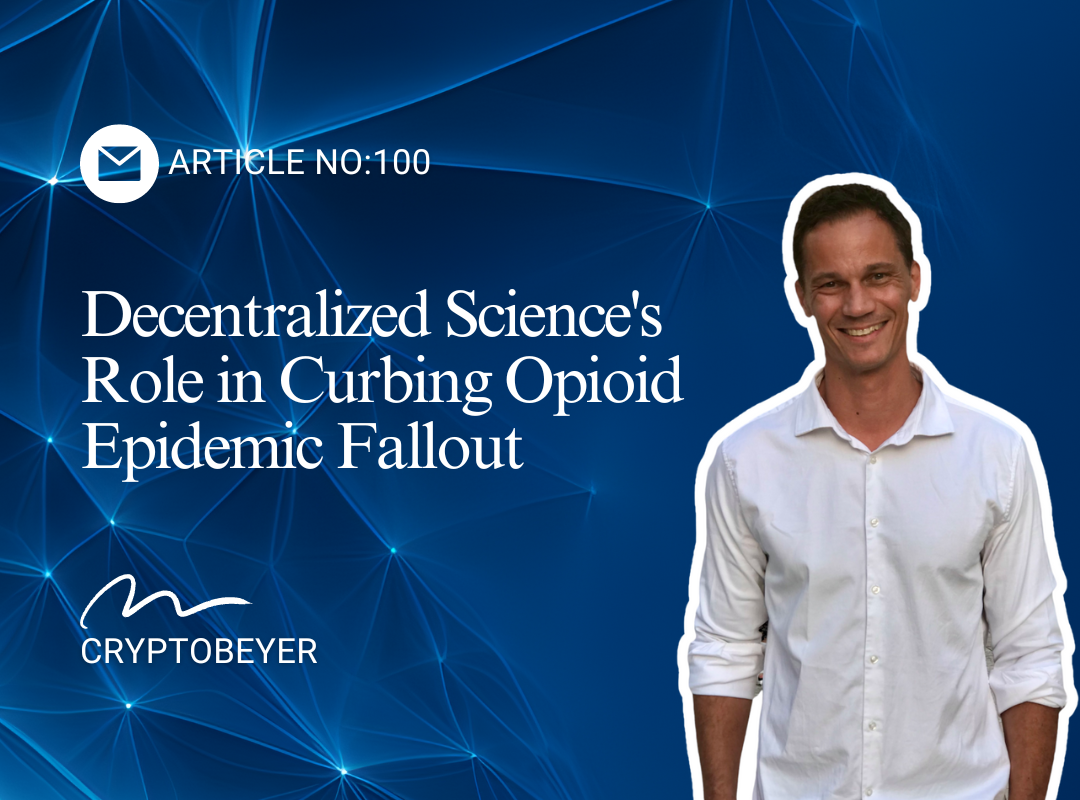The opioid epidemic across the world remains a distressing chapter in healthcare history. In the US, The Sackler family, owners of Purdue Pharma, faced accusations for exacerbating this crisis through the distribution of addictive opioid drugs like OxyContin. Their tactics, from deceptive marketing to influencing medical professionals, brought considerable harm. Let’s dig into how blockchain technology can stop bad actors in the pharmaceutical industry to the benefit of people and our well-being.
The US is not alone in suffering from bad pharma. Canada, Australia and UK have experienced a growing problem with opioid misuse and related deaths, with a rise in opioid prescriptions. Several European nations, including Germany, France, and Sweden, have also faced challenges related to opioid misuse and addiction, involving prescription opioids, illicit drug use, and overdose deaths. In the US the famous case against Purdue Pharma stands as clear evidence that the industry needs to be cleaned up. Here’s a way technology can help.
I welcome DeSci, shorthand for decentralized science, which can address and prevent pharmaceutical missteps like those seen in tragic Purdue Pharma's case. This innovative approach centers on transparency and immutable records, offering a potential shield against misleading marketing and unethical practices prevalent in the opioid epidemic.
No, the entire pharmaceutical industry should not be trusted. A friend of mine wrote his entire doctorate on the failings of the pharmaceutical industry. Furthermore, Richard Horton, The Lancet's editor-in-chief and an honorary professor at the London School of Hygiene and Tropical Medicine, has raised serious concerns about challenges in medical science, expressing skepticism about scientific literature's reliability and advocating for improvements in research incentives and data reproducibility.Subscribe
How DeSci Can Help Us
Yes, I would like to be able to trust pharmaceutical ads and know that they will be accountable.
Transparency in Research and Marketing: DeSci is about transparent research practices. If implemented in drug development, it could mandate open and honest data sharing, countering the manipulation or misrepresentation of a drug's properties. Such transparency could combat false advertising and misleading marketing strategies that is a major concern.
Here are other ways tech can help.
Immutable Records and Accountability: Leveraging blockchain, DeSci ensures records immune to tampering. This feature could create a clear trail of events and communications, making it challenging for companies like Purdue Pharma to engage in deceptive practices or conceal vital information related to their products.
Ethical Oversight and Accountability: Within DeSci, decentralized autonomous organizations (DAOs) could enforce ethical guidelines and supervise research practices. This might prevent instances similar to Purdue Pharma's funding of programs influencing medical professionals and curb unethical marketing strategies.
Community and Peer Review: DeSci promotes community involvement and peer review. A decentralized approach to sharing knowledge could foster a broader array of voices (even critics), making it harder for companies to exert undue influence or disseminate misinformation among a diverse group of stakeholders.
However promising DeSci seems in addressing pharmaceutical industry issues, it’s going to face significant barriers. Resistance from established systems, complex regulations, and the need for widespread acceptance create substantial hurdles. Furthermore, the pharma industry likes to make money and is willing to cut corners in doing so... Moreover, solving addiction, drug distribution challenges, and corporate responsibility requires solutions beyond technological advancements. The industry needs reorientation.
While I recognize DeSci's potential to curb unethical practices like Purdue Pharma's involvement in the opioid epidemic, its complete effectiveness in preventing such occurrences depends on a thorough industry-wide transformation. This change must be supported by clear rules and a deep shift in how companies approach ethics. Sure, DeSci can help, but only then can we genuinely prevent similar crises from happening again.

